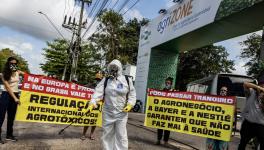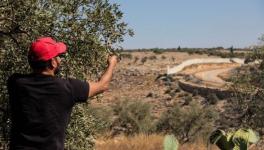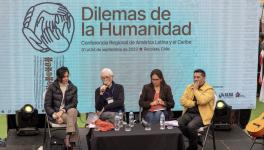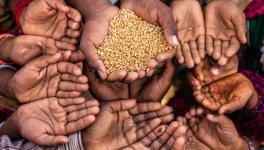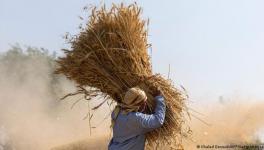Argentine Social Movements Propose a Food Sovereignty Plan
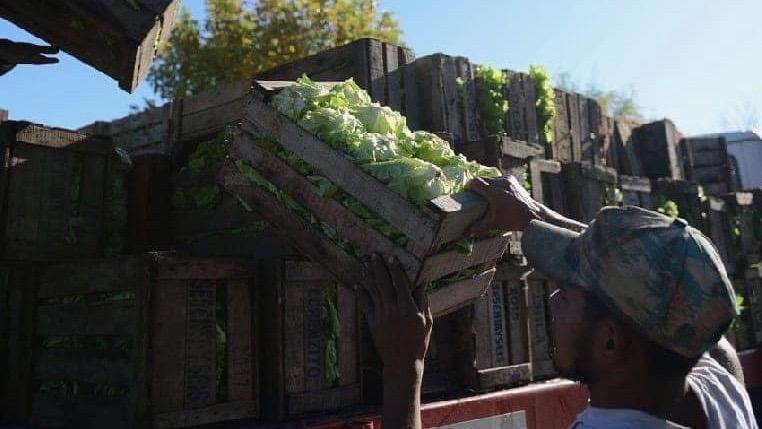
Argentine Social movements, Ciudad Futura and the Frente Patria Grande, proposed a food sovereignty plan that promotes the creation of a public food company to ensure the access to food to vulnerable sections of the society. Photo: MTE Rural
In the face of the situation of hunger and poverty caused by the previous right-wing government and aggravated due to the COVID-19 pandemic, Argentine social movements, such as Ciudad Futura and the Frente Patria Grande, have proposed a food sovereignty plan. The movements seek to promote a law that allows the creation of a public food company to ensure the access to food to historically neglected sections of the society.
The neoliberal economic policies of the previous right-wing government of former president Mauricio Macri led the country to its worst recession in history. More than 50% of the Argentine population was severely affected by the socio-economic crisis generated by the austerity measures implemented in accordance with the International Monetary Fund’s (IMF) policies. Due to the devaluation of the national currency, increasing unemployment, poverty, homelessness, rampant inflation and the lack of adequate government policies, basic food products were inaccessible for the majority of the Argentine population.
The spread of the COVID-19 pandemic has shown that in the face of the emergency, there are still great challenges facing the government to be able to guarantee an efficient food assistance system.
During the compulsory and preventive social isolation measure, the value of essential food products has shot up without any reasonable justification. Social movements claimed that the main reason behind the rising prices are the intermediaries.
The leaders associated with the movements explained that because of the concentration of economic power and the monopoly of a few distributors and producers over the value chain, most of the time, the State becomes a victim and has to pay a high price.
Faced with this situation, the social movements suggested the proposal of a public food company, which also aims at removing the intermediaries.
Federico Fagioli, the national deputy of the ruling left-wing coalition Frente de Todos, supported the proposal and said that he would present it in the Chamber of Deputies as well as in local legislatures. “We are going to present a bill in the parliament and in local legislatures that encourages the creation of a National Food Company to guarantee the right to food of our people, curb speculation and regain our sovereignty,” said Fagioli.

Federico Fagioli of Frente de Todos and Frente Patria Grande will present the bill for a national food company in the Chamber of Deputies.
The social leaders said that as a first step, the creation of local fractional plants must be promoted, which would essentially work with a network of small and medium-sized food producers who would sell in bulk to these plants. They noted that this would reduce the final prices, because of the absence of the intermediaries and price regulators. Additionally, the system would provide support to regional producers and ensure an expansion of the scope of assistance.
The leaders of the Frente Patria Grande informed that social movements, workers from the popular economy, cooperatives, small and medium-sized producers and the national, provincial and municipal government would take part in designing the Public Food Company.
They also informed that the draft bill establishes two stages for the operation of the Public Food Company. The first stage would concentrate on 10 essential products that are easy to preserve, such as flours, rice, pulses, noodles, herbs, sugar, oil, cereals, dry fruits and seasonings. At this stage, food would leave the plant with its own brand and arrive in the market in two formats: wholesale, for institutions, schools and community centers; and retail, for direct consumers in specially designed nutritional boxes, in which other foods items such as fruits and vegetables would also be made available. In the second stage, frozen food items will be incorporated such as dairy products and meats.
The project has the support of social activists Juan Grabois from the Frente Patria Grande, Juan Monteverde and councillors Caren Tepp and Pedro “Pitu” Salinas from Ciudad Futura, national deputies Federico Fagioli and Itai Hagman and the Buenos Aires legislator Ofelia Fernández.
The current President Alberto Fernández, since assuming office, has been continuously taking measures to reverse the socio-economic crisis created by Macrismo. In December 2019, it launched a Food Plan to combat hunger in the country. Under the scheme, the government distributed 2 million food cards to poor citizens, with the help of which they could purchase basic food products worth 4,000 pesos a month for free.
Get the latest reports & analysis with people's perspective on Protests, movements & deep analytical videos, discussions of the current affairs in your Telegram app. Subscribe to NewsClick's Telegram channel & get Real-Time updates on stories, as they get published on our website.









